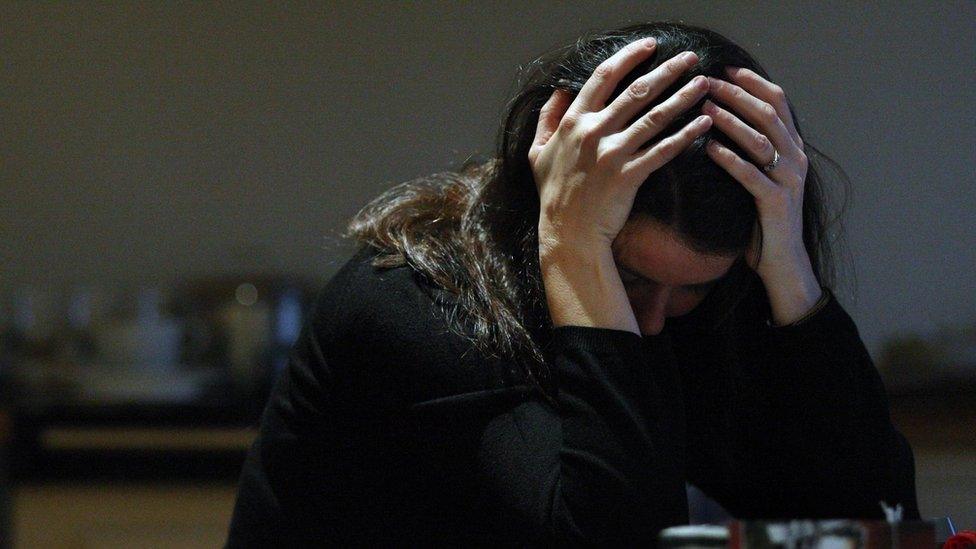Spotlight on domestic abuse: How lockdown created a 'perfect storm'
- Published
Alannah left her abusive relationship in London in 2013
"Stay at home" was at the core of public health advice in tackling Covid-19, the world over.
But home is not a place of safety for all.
Domestic violence and abuse is at a 15-year high in Northern Ireland, with more than 32,000 incidents reported to the PSNI from June 2019 to July 2020.
Restrictions to reduce the spread of Covid-19 have forced people to spend much more time at home and created the "perfect storm" for abusers.
BBC NI Spotlight went behind the scenes at Foyle Women's Aid to find out what it's like for some of those offering help to women and families in danger.
At the time we started filming, the tree-lined avenue to one of their refuges was paved with a blaze of autumnal yellow and red leaves.
The magnificent scene appeared in sharp contrast to the trauma that makes it necessary for women and children to take sanctuary in the refuge carefully protected by security gates.
'Christmas is not a good time'
"Nobody wants to be in a refuge and we would rather we weren't here but if somebody comes here, they are very well taken care of," says Marie Brown, chief executive of Foyle Women's Aid.
Calls to the organisation increased by 25% during the lockdown in the Spring, reflecting a trend across the UK, and Marie Brown believes that the current further restrictions will bring another surge.
"I do believe that we'll have a spike even in women contacting us. We're heading into Christmas. Christmas is not a good time for domestic violence."
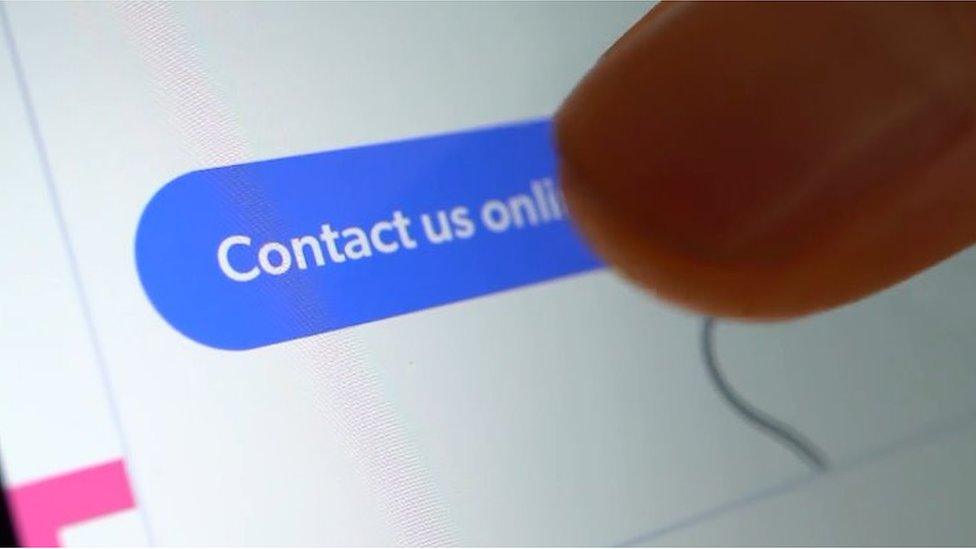
The National Domestic Abuse Helpline can be contacted online as well as by phone
The pandemic heralded huge changes in how everyone works in the centre. Roisin Hamill, the manager of the onsite creche, finds one of the new regulations particularly difficult when dealing with families as part of their outreach programme.
"When you're out delivering packs to families, you know they've been isolated at home for so long and that look on their face seeing somebody for the first time and you can't go and give them a hug - that's really difficult for us.
"We do explain to children and we explain to mummies that this will be a socially-distanced visit, it isn't our 'normal' and we can't wait to see you back again and we can't wait to give you that big hug."
The centre is more than a refuge.
'Victim stereotypes'
Those dealing with the aftermath of an abusive relationship can also avail of support courses run by the organisation.
Alannah suffered abuse in a former relationship in London, which she broke free from in 2013. She undertook a group course on the recommendation of a counsellor.
"There's a stereotype around what it means to be a victim of abuse," she tells Spotlight.
"Growing up, I would always have said: 'Sure I wouldn't stay with somebody, sure if they lifted their hand to you, why would you stay? What kind of woman would stay? It's stupid.' And it was only after my own experience that I realised it's not about why women stay.
"Quite often they are staying because they believe they can fix that broken person because people who perpetrate abuse, they're very clever, they're very manipulative."
Alannah says that it took her time to realise that she needed to break free from the man who was doing harm to her.
"The first few times that there was physical violence, I was very concerned - obviously - for my own well-being but these people are manipulative, I was more concerned for his well-being. And that's just crazy to think that, but you do. You end up feeling sorry for that person.
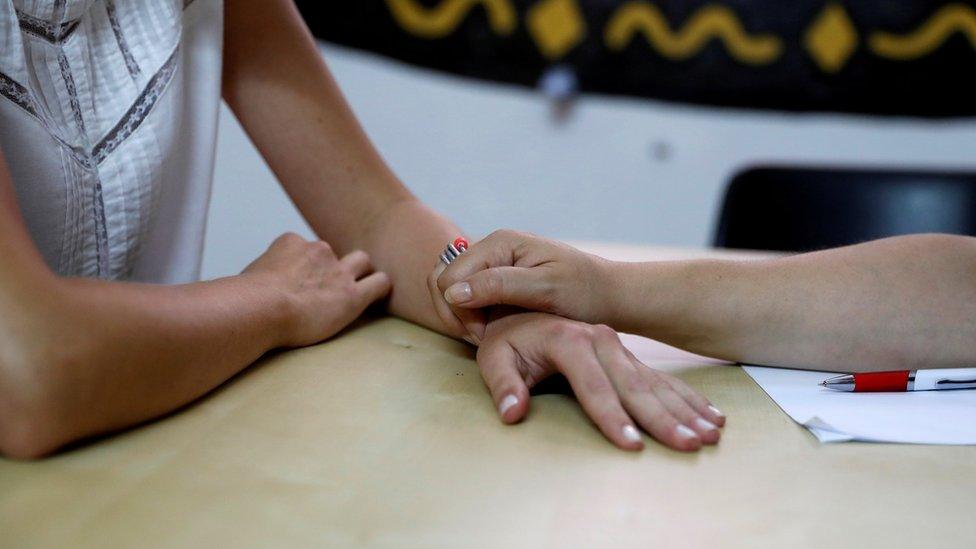
"Only when I genuinely thought that I could die, and I imagined my family, and the impact that would have on them, that for me was the last straw and that was the moment that I realised I had to leave and that I couldn't fix that person."
Back in one of Foyle Women's Aid offices, Margaret Patterson, a referral co-ordinator, is rarely off the phone.
"Some people want to tell you their whole story, some people don't want to tell you their story. And some people need encouragement just to get the basic information. We've had people who phoned who wouldn't even tell us their names. They just want someone to talk to."
Margaret takes the initial calls from women and then a support worker is assigned to them.
But Covid-19 restrictions have also made it more difficult for support workers, like Marie Crossan, to meet service-users and, in particular, to check in with those who may still be living in the same home as their abusers.
"You know your clients, you know if there's clients still in that relationship and you know that it's going to be particularly difficult to get speaking to them.
"You have to rely on them getting out for five minutes and giving you a call.
"Maybe their partner is off work so things are quite intense because the kids are at home. Women are trying to protect the kids and trying to keep things calm at home."
Alannah says she, along with many others, is testament to the fact that there is life after an abusive relationship.
'Loving, healthy relationship'
"I genuinely didn't believe that I would ever be in a long-term relationship again.
"So then actually meeting my partner and becoming involved in a loving, healthy relationship, it was at the beginning and it still is - it amazes me some days just how nice life can be.
"Someone asked me one time, they asked me what did it feel like to be free? And I thought, 'well I don't know'. At that point I didn't really feel like I was.
"I was getting there but freedom doesn't happen when you leave the relationship. It's not this miraculous thing that people sometimes expect, 'oh she's left him now she should be happy'.
"That battle will rage in your head for a long time after you've left. Overcoming those battles is not an easy thing - but you can."
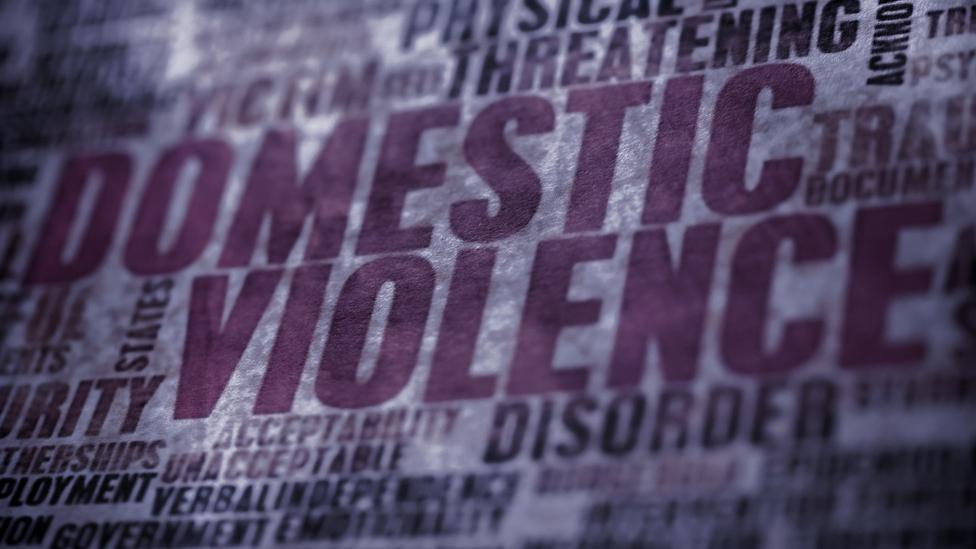
In Northern Ireland, a domestic abuse call is made to the PSNI on average every 17 minutes.
Resources like housing, aid and legislation are among a raft of measures that deal with the aftermath of domestic abuse but preventing it, is for Alannah, something that needs to start in the home.
"I have a boy and a girl. Raising your daughter to be aware of it and to recognise red flags and leave and speak out - and that's one thing but if everybody just teaches their daughters to leave, we're not handling the problem, we need to teach our sons as well.
"We need to instil in them the values and the importance of respecting women and respecting themselves and opening up if they are struggling."
Information and support: If you or someone you know needs support for issues about domestic abuse, these organisations may be able to help.
You can see Spotlight on BBC One NI, Tuesday at 22:45 GMT and afterwards on BBC iPlayer.
- Published27 April 2020
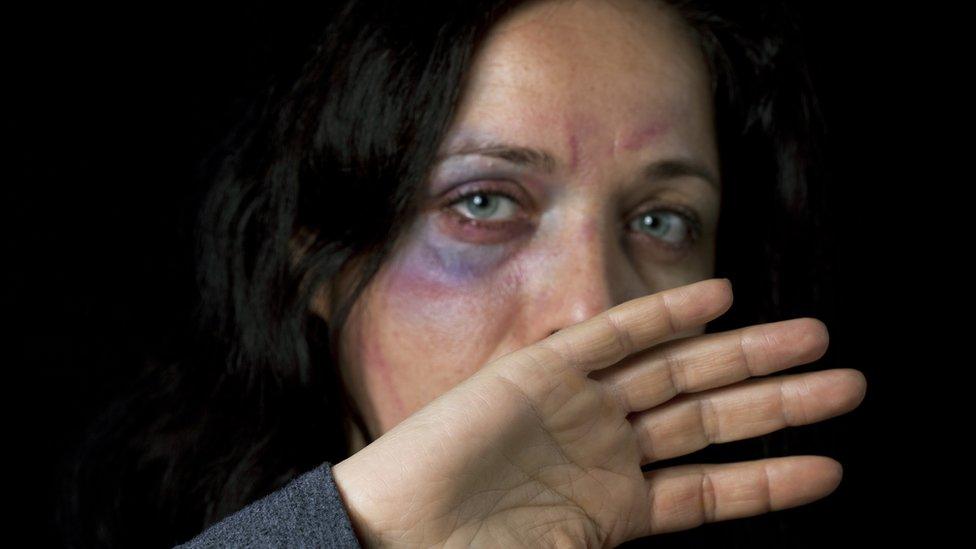
- Published28 April 2020
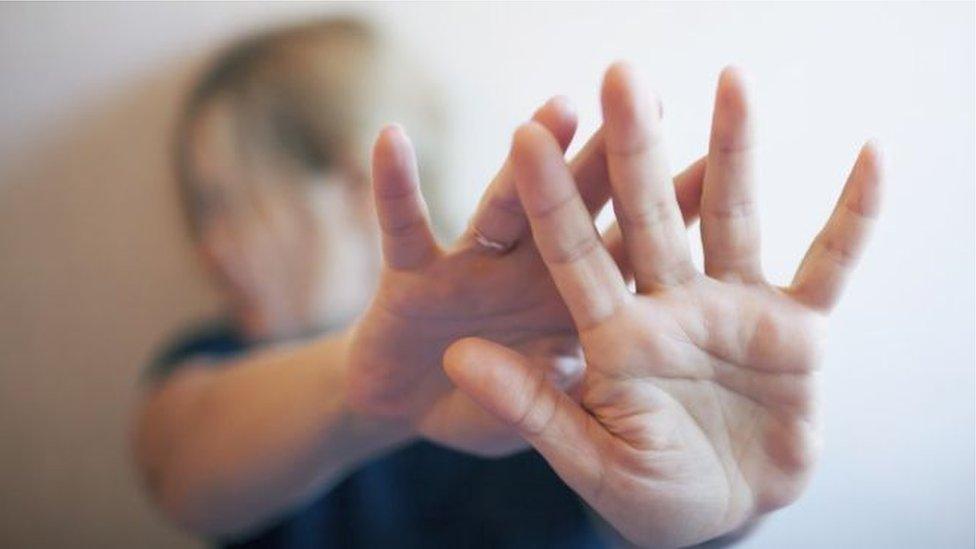
- Published26 June 2020
